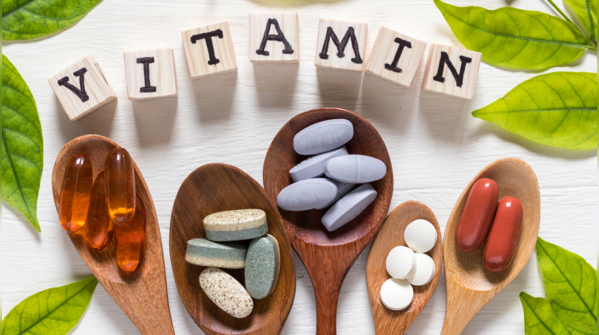- News
- lifestyle
- health-fitness
- health-news
- From twitching to yawning: Weird signs that our body gives which are due to common nutritional deficiency
From twitching to yawning: Weird signs that our body gives which are due to common nutritional deficiency

1
The human body is constantly communicating, sending out signals when something isn’t quite right. But sometimes, these signs seem so unusual that they are ignored. From random muscle twitches to excessive yawning, these seemingly harmless quirks could actually indicate a nutritional deficiency. Dr.Eric Berg, a well-known health expert, has shared insights on some of these unusual symptoms and their possible links to vitamin and mineral deficiencies.
What are the common and weird signs that we might have ignored on a daily basis, and what are the small dietary adjustments that can help maintain overall well-being?

A mysterious rounding sound? It might be low potassium
Ever heard a weird rounding or drumming sound inside your ears, especially when lying down? This strange phenomenon might be linked to a potassium deficiency. plays an important role in maintaining fluid balance, nerve signals, and muscle contractions. When levels drop, the body's ability to regulate pressure inside the ears may be affected.
How to fix it:
Increasing potassium-rich foods like bananas, spinach, and sweet potatoes can help restore balance.

Muscle twitching? Magnesium might be the culprit
Involuntary muscle twitching, especially around the eyes or legs, can be unsettling. This can be traced back to a magnesium deficiency. is essential for nerve function and muscle relaxation. A deficiency may cause hyperexcitable nerves, leading to random muscle spasms or twitches.
How to fix it:
Adding magnesium-rich foods like nuts, seeds, dark leafy greens, and whole grains can help regulate muscle function and reduce twitching episodes.

Excessive yawning? Zinc levels could be low
Yawning is normal when tired, but when it happens excessively, even when well-rested, it might signal a zinc deficiency. is critical for enzyme function, immune health, and neurological balance. Its deficiency can lead to sluggish energy levels and frequent yawning.
How to fix it:
Eating zinc-rich foods such as pumpkin seeds, chickpeas, meat, and dairy can help boost zinc levels and restore normal energy metabolism.

Constant anxiety? A lack of vitamin B1 could be to blame
Feeling unusually anxious, nervous, or overwhelmed? It might not always be stress but rather a vitamin B1 (thiamine) deficiency. This vitamin is crucial for nerve function and helps regulate the body's stress response. Low levels can cause heightened feelings of worry and unease.
How to fix it:
Including whole grains, sunflower seeds, and legumes in daily meals can help replenish vitamin B1 levels and support a calmer mind.

High cholesterol? Low niacin might be the hidden cause
While high cholesterol is commonly associated with diet and lifestyle, low niacin (vitamin B3) levels can also play a role. Niacin helps metabolize fats and supports healthy blood circulation. When the body lacks enough niacin, cholesterol levels may rise, increasing the risk of heart-related issues.
How to fix it:
Foods rich in niacin, such as fish, chicken, peanuts, and whole grains, can help balance cholesterol levels naturally.

Difficulty seeing in the dark? Vitamin A or zinc deficiency could be the reason
Struggling to see clearly in dim lighting could be a sign of vitamin A or zinc deficiency. Both nutrients are essential for eye health and play a role in adapting to low-light conditions. Deficiencies in either can lead to night blindness and overall vision problems.
How to fix it:
Including vitamin A-rich foods like carrots, sweet potatoes, and liver, along with zinc sources like nuts and dairy, can help improve night vision and overall eye health.








